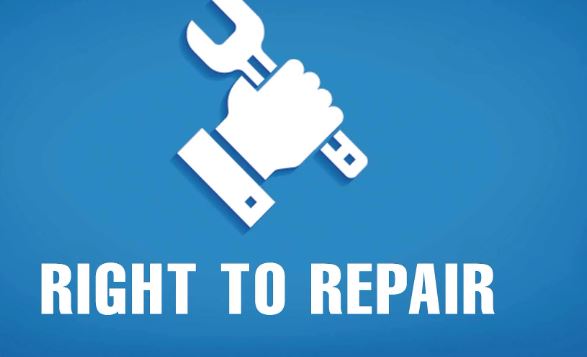The right to repair – The rationale and the way forward

From Current Affairs Notes for UPSC » Editorials & In-depths » This topic
IAS EXPRESS Vs UPSC Prelims 2024: 85+ questions reflected
Context: Apple recently announced that consumers will have the right to purchase spare components of their products, following an order of the Federal Trade Commission of the United States, which directs manufacturers to remedy unfair anti-competitive practices and asks them to make sure that consumers can make repairs, either themselves or by a third-party agency. The momentum is, however, not so strong in India.

The rationale behind the “right to repair”
- The rationale behind the “right to repair” is that the individual who purchases a product must own it completely.
- This implies that apart from being able to use the product, consumers must be able to repair and modify the product the way they want to.
- The absence of repair manuals means that manufacturers hold a near-monopoly over repair workshops that charge consumers exorbitant prices.
- Tech giants contend that security and privacy concerns may crop up if products based on a technology patented by them are opened up by third parties.
- However, many countries have taken initiatives, adopted policies and even tried to enact legislation that recognizes the “right to repair” to reduce electronic waste.
The customer’s “right to choose”
- Monopoly on repair processes infringes the customer’s “right to choose” recognized by the Consumer Protection Act, 2019.
- Consumer disputes jurisprudence in the country has also partially acknowledged the right to repair.
- In Shamsher Kataria v Honda Siel Cars India Ltd (2017), for instance, the Competition Commission of India ruled that restricting the access of independent automobile repair units to spare parts by way of an end-user license agreement was anti-competitive.
- The CCI observed that the practice was detrimental to consumer welfare.
Way forward
- If people want to fix things in a timely, safe and cost-effective way, whether by doing it themselves or taking it to a service centre of their choice, providing access to spare parts and information is imperative.
- A well-drafted legislation will not only uphold the right to repair but may aid in striking a much-needed balance between intellectual property and competitive laws in the country.
Practice Question for Mains
- A well-drafted legislation will not only uphold the right to repair but may aid in striking a much-needed balance between intellectual property and competitive laws in the country. Examine. (250 Words, 15 Marks)
If you like this post, please share your feedback in the comments section below so that we will upload more posts like this.

